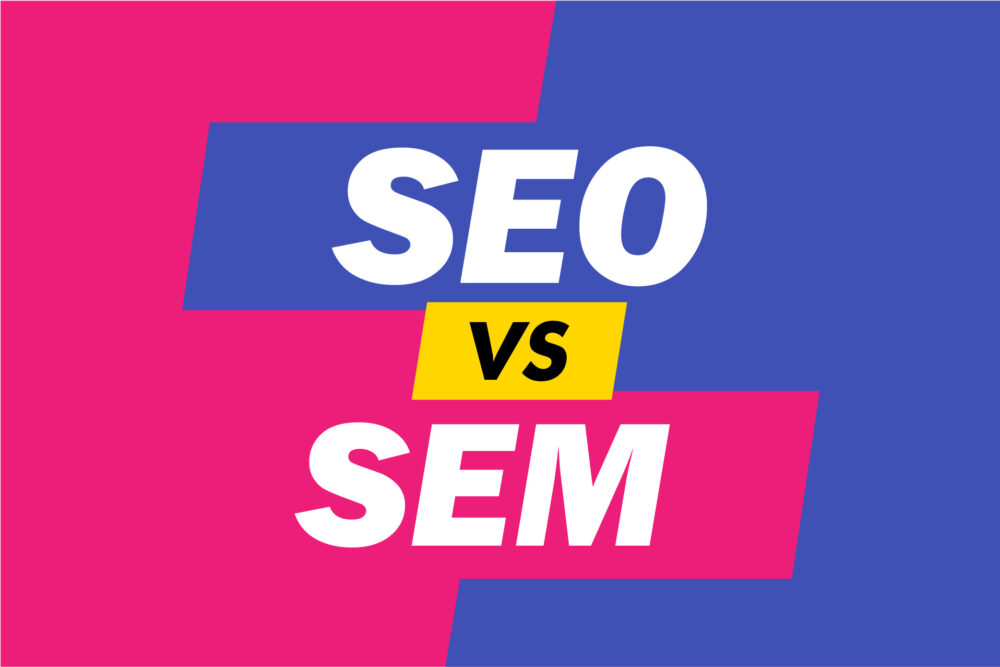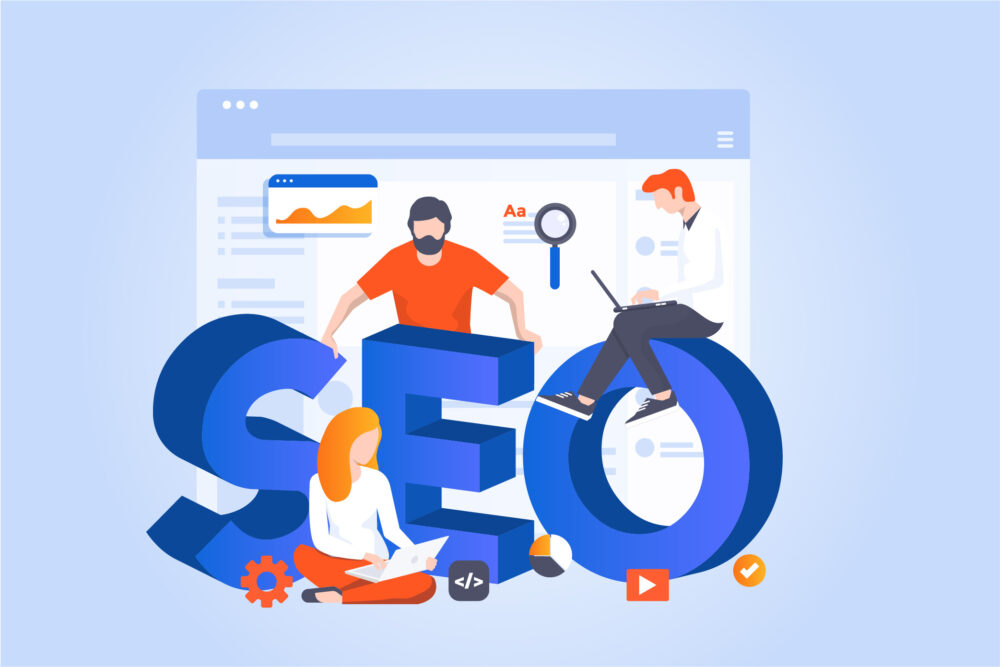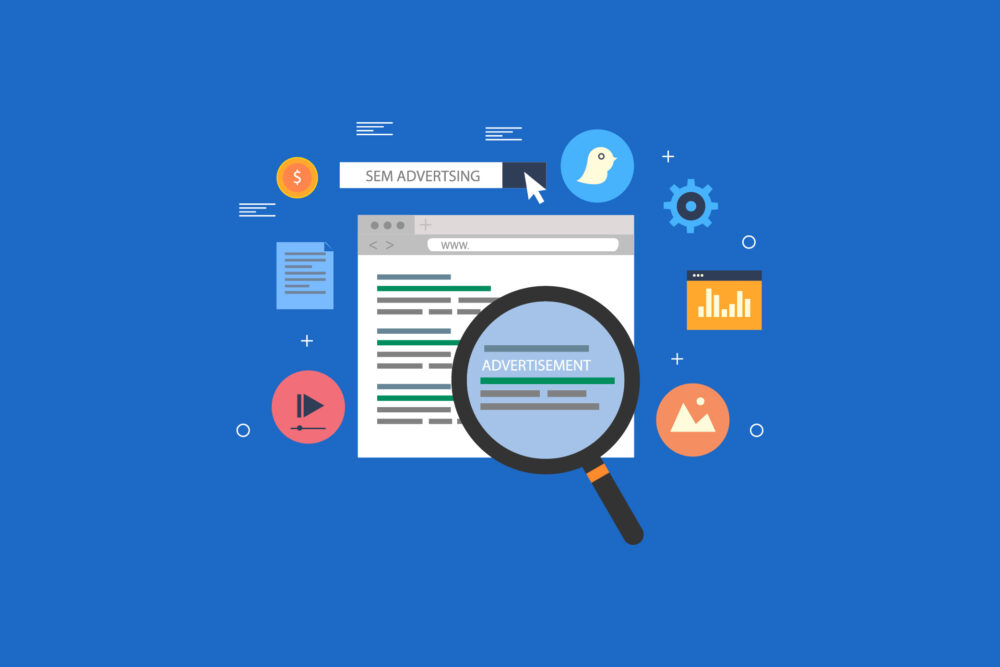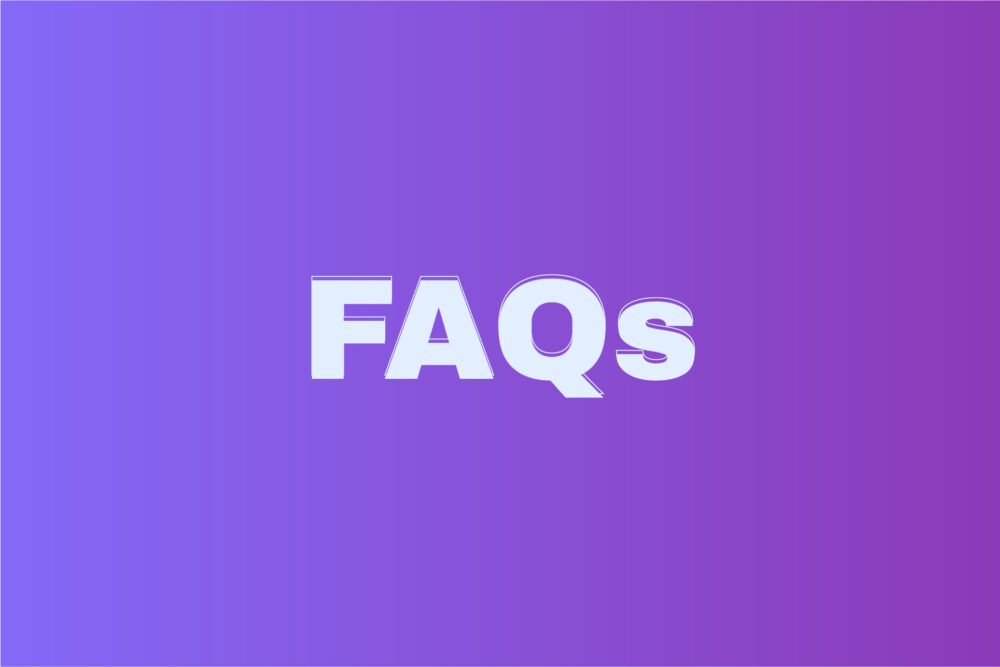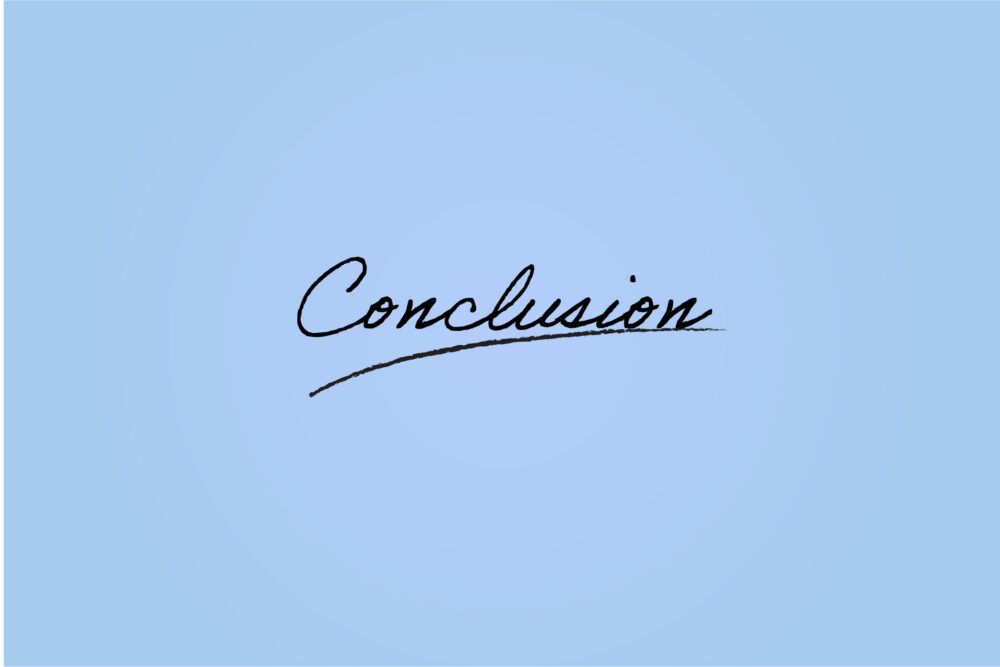SEM and SEO are the two most important strategies of online marketing. They both deal with improving visibility and generating traffic, but they approach it differently. Search Engine Optimisation means optimising your website and content to rank well in SERPs.
On the other hand, Search Engine Marketing is all about using paid advertising to get your website to the top of SERPs. This blog post will discuss the specialities and differences between Search Engine Optimisation and Search Engine Marketing.
Define SERPs
SERPs stands for Search Engine Results Pages. It means the pages are displayed when you search for something on a search engine. The SERP is determined by several factors, including the keywords you use, your location, and the search engine’s algorithm.
The algorithm is a set of parameters that the search engine follows to rank websites. The algorithm is constantly changing, so it’s essential to keep up with the latest trends and changes to rank well. Many factors go into the algorithm, including website content, backlinks, and social media engagement.
What is SEO?
SEO stands for “Search Engine Optimisation”, which includes the process of optimising your website and content to rank high in SERPs. One can do several things to improve your Search Engine Optimisation, including optimising your website’s title tag, meta description, and header tags.
You can also improve your website’s content by adding keywords and optimising your images. Furthermore, you can build backlinks to your website to improve its authority.
What is SEM?
Search Engine Marketing includes the process of using paid advertising to get your website to the top of SERPs. Search Engine Marketing can be done in several ways, such as using paid search engine results, display advertising, and social media advertising.
What are the differences between SEM and SEO?
The main difference between Search Engine Optimisation and Search Engine Marketing is that you can get desired results free using SEO, while SEM requires paid advertising. This is because search Engine Optimisation relies on optimising your website and content to rank high in SERPs, while Search Engine Marketing uses paid advertising to get your website to the top of the results pages.
Search Engine Optimisation is also a long-term strategy, while Search Engine Marketing can be more short-term. Search Engine Optimisation takes time to implement and see results, while Search Engine Marketing can quickly produce results. However, Search Engine Marketing is more expensive than Search Engine Optimisation.
What are the specialities of SEO and SEM?
Search Engine Optimisation is mainly concerned with optimising website content and boosting website traffic. In addition, it focuses on improving organic search results through keyword research, backlinking, and social media engagement.
On the other hand, Search Engine Marketing is concerned with using paid advertising to get your website to the top of SERPs. So it generates traffic through paid channels like search engine results pages, display advertising, and social media advertising.
Four significant factors of Search Engine Optimisation
Search Engine Optimisation is gradually changing and evolving, so it’s crucial to keep up with the latest best practices. But what are the significant aspects of Search Engine Optimisation?
There are four main aspects of Search Engine Optimisation that you need to focus on: –
- Content
- Links
- Technical optimisation
- On-site SEO
Content is key to ensuring successful Search Engine Optimisation. Therefore, you should create quality content to engage your audience and attract links.
Links (a.k.a backlinks) are still a significant ranking factor, so you need to build links to your content from reputable sources.
Technical optimisation is also essential, and you need to make sure your website is correctly optimised for a high ranking.
On-site SEO is most important, and you need to make sure your website’s title tags, meta descriptions, header tags, and other elements are properly optimised.
These are the four main pillars of Search Engine Optimisation that you need to focus on for a higher search engine ranking.
Best tools for Better SEO and SEM Results
Many different tools can help you get better results in Search Engine Optimisation and Search Engine Marketing.
SEO Tools
Some of the best Search Engine Optimisation tools include:
- Google Analytics is a free tool that can track your website’s traffic.
- Moz Pro is a paid tool that helps track your website ranking and backlinks.
- SEMrush is a paid tool that helps track your competitor’s website ranking and keywords.
- Screaming Frog SEO Spider Tool is a free tool (up to 500 URLs) that enables you to crawl your website for errors.
- Ahrefs is a paid tool that helps track your competitor’s website ranking and backlinks.
SEM Tools
Some of the best Search Engine Marketing tools are:
- Google AdWords is a tool that helps you create and run ads on Google.
- Bing Ads is a tool that enables you to create and run ads on Bing.
- Facebook Ads is a tool that can create and run ads for you on Facebook.
- LinkedIn Ads is a tool that helps you create and run ads on LinkedIn.
- Twitter Ads is a tool that allows you to create and run ads on Twitter.
Using these Search Engine Optimisation and Search Engine Marketing tools can improve the results of Search Engine Optimisation and Search Engine Marketing.
How can we improve our website’s SEO?
We can do different things to improve our website’s Search Engine Optimisation. Of course, some factors, like the age of your domain name are outside of our control, but there are many factors we can influence. One of the most important things is to make sure our website is optimised for search engines. This means using keywords naturally in our titles and descriptions and the text of our pages. We can also use images with relevant keywords in their file names and add metadata to our pages. Another critical factor is the number and quality of links to our website. We can encourage other websites to link to us by including links to our website and by submitting our website to directories and search engines. And finally, we can use social media to promote our website and its content.
By following these tips, we can improve our website’s Search Engine Optimisation and help it to rank higher on SERPs.
How can we improve our SEM Strategy?
There are a few ways to improve our Search Engine Marketing strategy. One way is to make sure that your website has a useful landing page. We can also make sure that our keywords are targeted correctly and use the right tools and platforms to help us succeed.
One of the best strategies of Search Engine Marketing is using the right tools and platforms to help us succeed. SEMrush is a tool that can help us track our website’s ranking and our competitor’s. It can also help us find related keywords that we may not have thought of before.
Another great tool is Google AdWords. AdWords can help us create and place ads on Google and other websites that are linked to the program. It’s an efficient way to get our name in the market and reach a larger audience.
Finally, we can also improve our Search Engine Marketing strategy by ensuring that our website is effective and user-friendly. For example, we can test different designs and layouts to see what works best, and we can make sure that our content is high quality and informative.
These tips can improve our Search Engine Marketing strategy and help us see better results in the future.
When to focus on Search Engine Optimisation only?
As a business, you should consider focusing on Search Engine Optimisation when you: –
- Don’t have the budget for Search Engine Marketing.
- Want to rank for long-tail keywords.
- Don’t have a lot of brand awareness.
- Want to increase website traffic over the long term.
When to focus on SEM?
As a business, you should consider focusing on Search Engine Marketing when you: –
- Want to get results quickly.
- Have a lot of brand awareness.
- Want to rank for high-traffic keywords.
- Need your website to rank higher in organic search results.
- Want to generate leads or sales through paid channels.
FAQs
Is SEO or SEM better?
There is no one-size-fits-all answer to this question, as the best approach for your business will depend on various factors. However, Search Engine Marketing is usually more expensive but can be more effective and efficient, while Search Engine Optimisation is less expensive but takes longer to produce results. It’s important to remember that SEO and SEM are just two of many digital marketing strategies that one can use to promote your business.
Other options include social media marketing, content marketing, and email marketing.
What is the difference between SMO, SEO, and SEM?
SEO (Search Engine Optimization) is the process of boosting the ranking of a website on search engines. SMO (Social Media Optimization) uses social media platforms to increase website traffic or brand awareness. SEM (Search Engine Marketing) uses paid advertising on search engines to promote a website.
The main difference between SEO and SMO is that Search Engine Optimisation is complimentary, while SMO requires investment in time or money. On the other hand, the main difference between SEO and SEM is that Search Engine Marketing is paid, while Search Engine Optimisation is not.
Is Paid search SEO or SEM?
Paid search, also known as SEM (Search Engine Marketing), is gaining web traffic through paid advertisements on search engines. SEO (Search Engine Optimization) optimises a website for unpaid search results.
Search Engine Optimisation is a long-term marketing strategy, whereas Search Engine Marketing is a short-term tactic used to achieve quicker results. Search Engine Optimisation aims to improve a website’s rank in unpaid search results, while Search Engine Marketing places paid ads at the top of the Search Engine Results Pages (SERPs).
Is SEO a part of SEM?
Search Engine Optimisation and Search Engine Marketing are two different aspects of online marketing. Search Engine Optimisation focuses on enhancing a website’s visibility and ranking in Search Engine Results Pages (SERPs), while Search Engine Marketing is about using paid advertising to improve website visibility.
Even though they are different aspects of online marketing, they effectively achieve better results.
Is SEM pay per click?
Yes, SEM is a type of pay-per-click advertising. When you run a search on Google, for example, the results you see are not just a result of Google’s algorithm ranking them according to their relevance. Instead, the results you see are paid ads, ranked based on how much the advertiser is willing to pay per click (the “bid price”).
Conclusion
In conclusion, SEO and SEM are both essential aspects of Digital marketing. SEO is free and relies on optimising your website and content to rank high in SERPs. Search Engine Marketing is paid to advertise and uses several channels to get your website to the top SERPs. They both have their specialities, so it’s essential to understand the differences before deciding which one to use.
